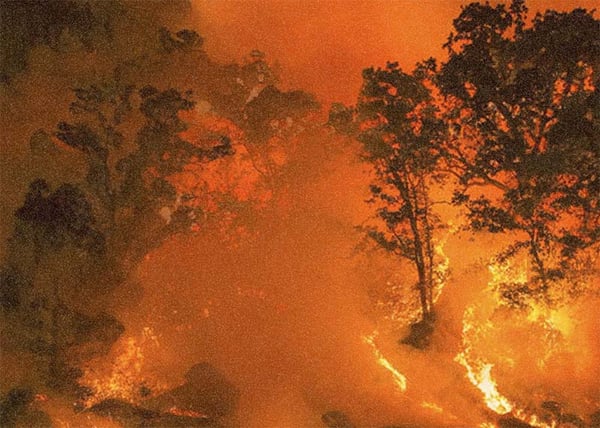How Türkiye's fires fuel Erdoğan's profit
Each summer, wildfires ravage across Türkiye's Aegean and Mediterranean coasts. While the flames dominate headlines, another story is unfolding in the ashes: the quiet transformation of burned forests into profitable construction zones.
This summer is no different, with new wildfires adding to the more than 350,000 hectares of forest lost since 2020, much of it in key tourist regions. But Erdoğan's government sees this as an opportunity.
In Marmaris, thousands of hectares burned in 2021. Within months, construction permits were issued for a luxury hotel and several holiday villas near previously protected forests. Similarly, in Bodrum, fires in 2023 were followed by zoning changes and new tourism projects.
Turkish law forbids construction on forest land destroyed by fire. Yet in practice, this protection is often bypassed: fire-damaged areas are reclassified as ”degraded forests” or included in ”tourism development zones”, allowing hotels, residential complexes, or mining operations. Especially along the Aegean and Mediterranean coasts, hundreds of thousands of hectares have been approved for tourism or industrial use, often soon after wildfires.
Without oil revenues like the Gulf monarchies, Türkiye's ruling elite turns to land-based rent-hotels, airports, luxury housing and mega-projects that generate both revenue and political support. This strategy relies heavily on tourism, which directly and indirectly accounts for around 12% of Türkiye's GDP, employing over 3.2 million people, and generating approximately 135 billion US dollar in economic output in recent years. For this system to persist, it needs constant territorial expansion: new land, new zoning, new investments.
Tourism developments on formerly forested land serve another purpose: attracting tourists from visa-free European countries, delivering the hard currency that Türkiye's struggling economy desperately needs.
Erdoğan's alliance with loyal construction firms is well-established. What has changed in recent years is the scale and speed of transformation. Delays in firefighting, underfunded aerial response units, and weak preventive strategies leave forests exposed.
Critics argue that the state's inaction is not coincidental but systemic. With wildfires now expected every summer, these patterns raise a pressing question: are these fires merely natural disasters, or have they become politically useful crises? What's being lost is not only forest, but the last buffer standing between ecological survival and authoritarian profiteering.
